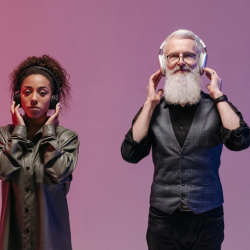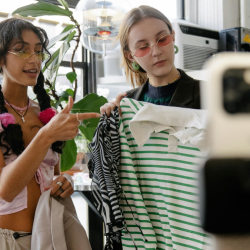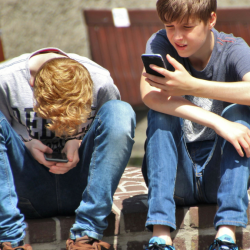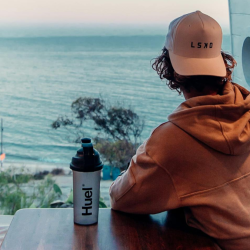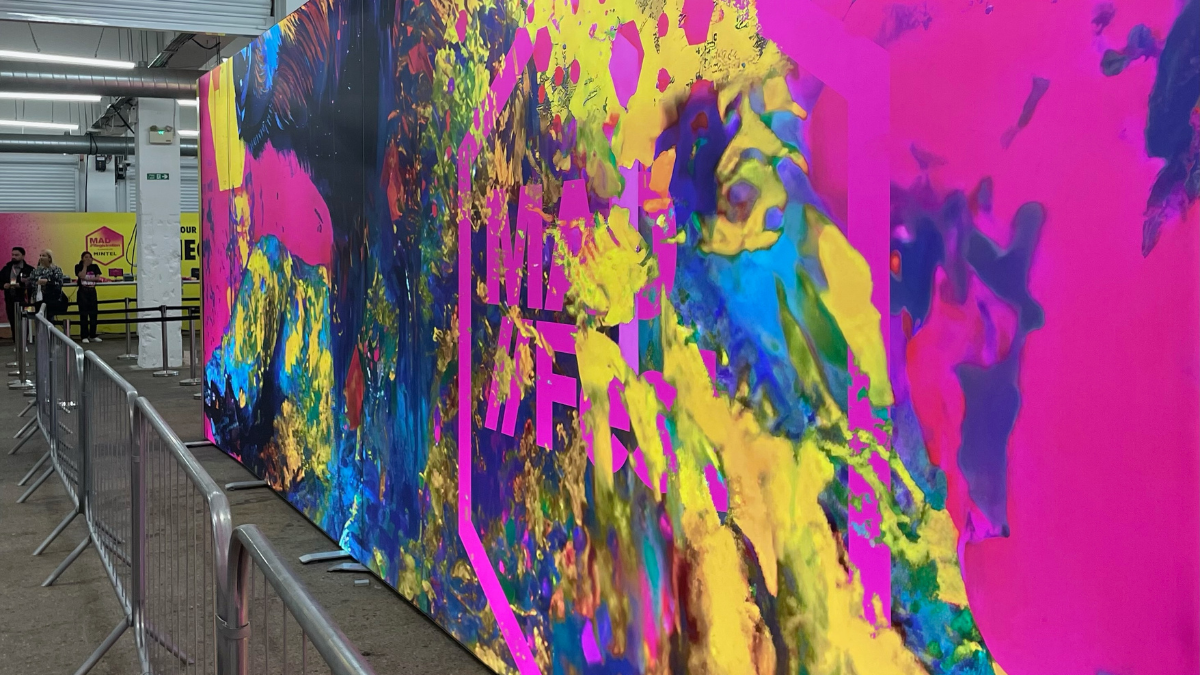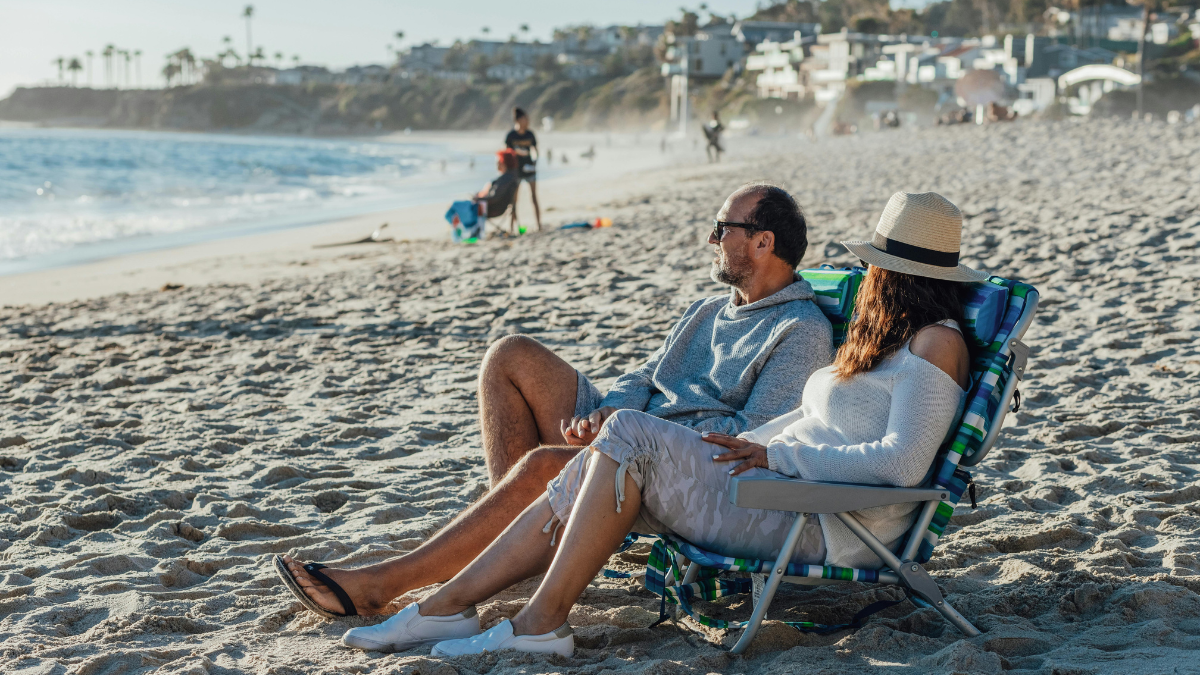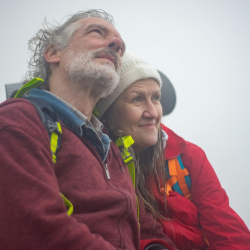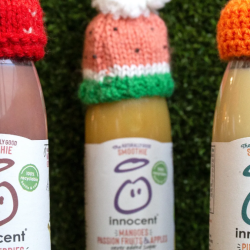Last week, I attended day two of MAD//Fest at the Old Truman Brewery in London. With content spread across ten topic-themed stages, the festival’s speakers addressed everything from attention, creativity, and brand innovation to Artificial Intelligence, emerging tech, and the creator economy.
Focusing on the subjects of creativity and attention, I had the chance to hear from industry-leading brands including Starling Bank, Pepsico, EasyJet, DEPT, System 1, Boots, Vodafone, Allwyn, and HELLO! Magazine.
Fortune favours the bold
I noticed one message coming up repeatedly on the Creativity stage — that is, be brave and say ‘No’. Not surprisingly, this advice aligned perfectly with MAD//Fest’s 2024 tagline, ‘Fortune favours the bold’. The creativity stage kicked off with an interview featuring Starling Bank’s Brand and Marketing Director, Rachel Kerrone.
During her chat with Automated Creative’s Founder, Tom Ollerton, Kerrone shared how Starling Bank grew into a business with more than 3,000 employees and 4 million customers. According to her, it was a focus on customer centricity — and even ‘customer obsession’ — that contributed to the bank’s success.
Expanding on what makes Starling Bank stand out from traditional banks, she said: ‘Banks of the past were built to look after people’s money, not the customers.’ Giving an example of building customer-first products, she pointed to Starling Bank’s ‘hide references’ feature, which allows victims of economic abuse to block references that may contain insults or threats. This feature is now used by more than 25,000 customers.
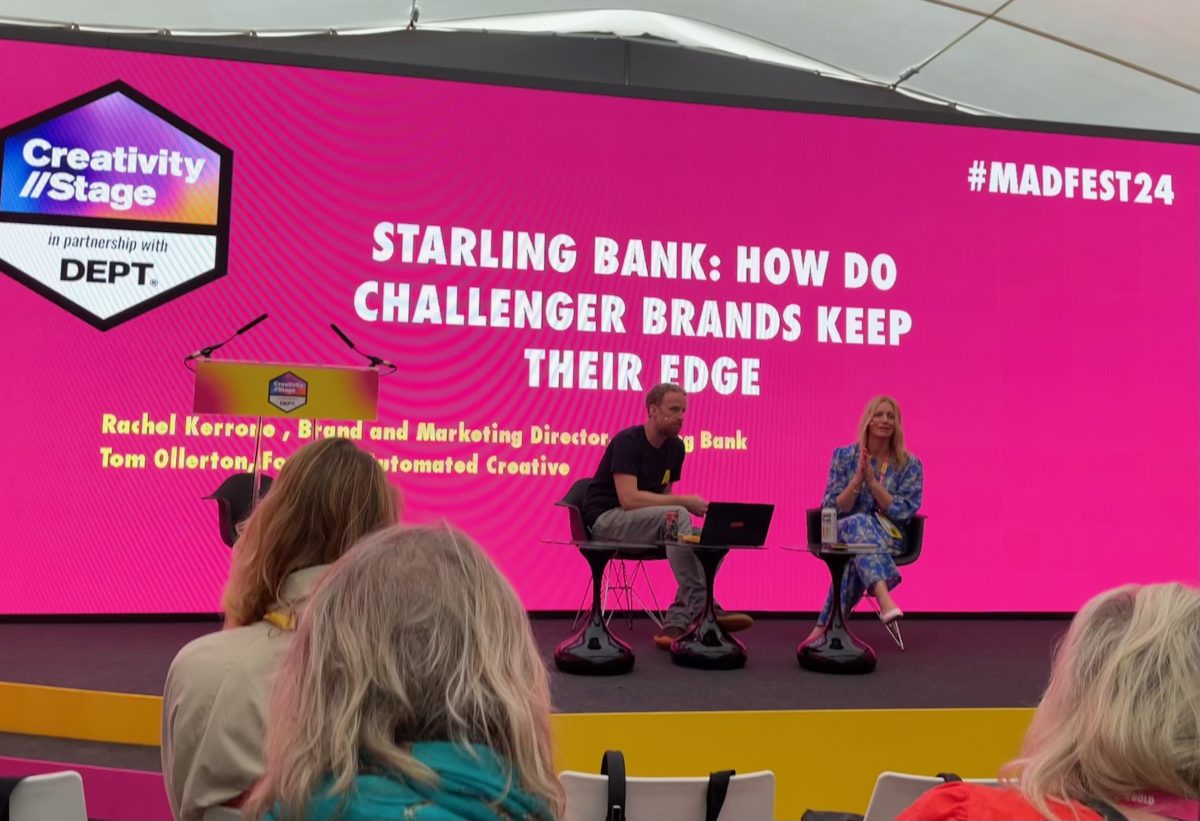
When asked how Starling Bank will continue to keep its edge, Kerrone replied: ‘By being authentic, brave, and doing things differently’. In addition to this, she left the audience of creatives with a striking piece of advice:
Never take no for an answer, even if it is the CEO or CFO.
Matt Watson, ECD at Pepsico, echoed Kerrone’s advice in his session ‘Unleashing Creativity from Within’ and revealed the four Cs necessary for success: culture, collaboration, challenger, and celebrate.
Focusing on the challenger aspect, he reminded us that creatives are often hired for their ability to think differently and bring in new ideas. For this reason, he stressed the power of challenging asks, saying ‘No, but what if?’ and offering alternatives.
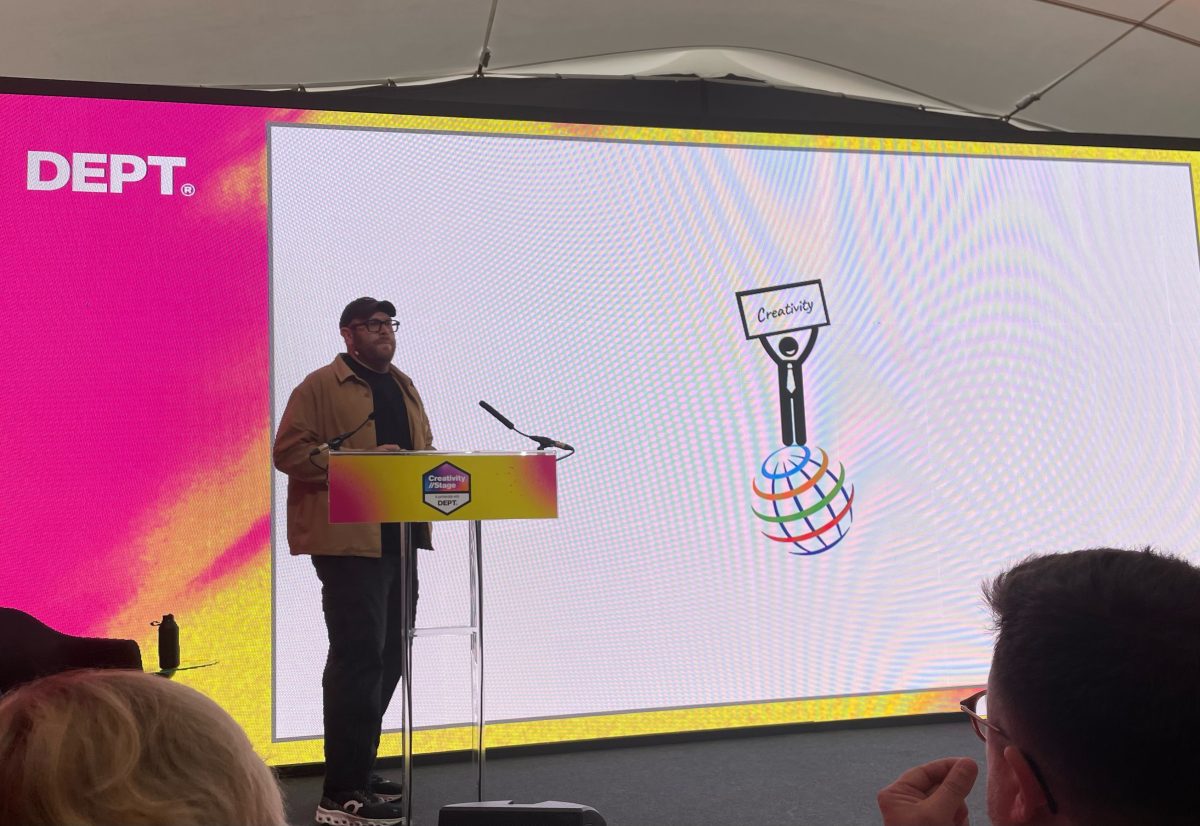
Embracing ‘strategic silliness’
With the rise of TikTok videos and Instagram reels, more and more brands are adopting humour and entertaining audiences. Tom Hazelden, Head of Brand, Planning and Content at EasyJet, and Phoebe Ord, Business Director at DEPT, discussed this subject as they showcased how the airline adopted ‘strategic silliness on social’.
Noting that EasyJet is committed to creating a community joined by ‘the unbounded joy of travel’, the airline wanted to tap into this ‘joy’ and focus on humour and entertainment. Taking a brave new route, they decided to jump on niche trends such as the Bentley ASMR and Elf on a Shelf (Jane on a Plane). Commenting on the results of their bold strategy, the speakers said:
The best thing about this work is that it is working.
Expanding on why they are seeing positive results, they said that ‘the weird is what viewers remember’. Hazelden and Ord further highlighted that they are no longer competing with just brands in their industry but all brands since everyone is now fighting for viewers’ attention.
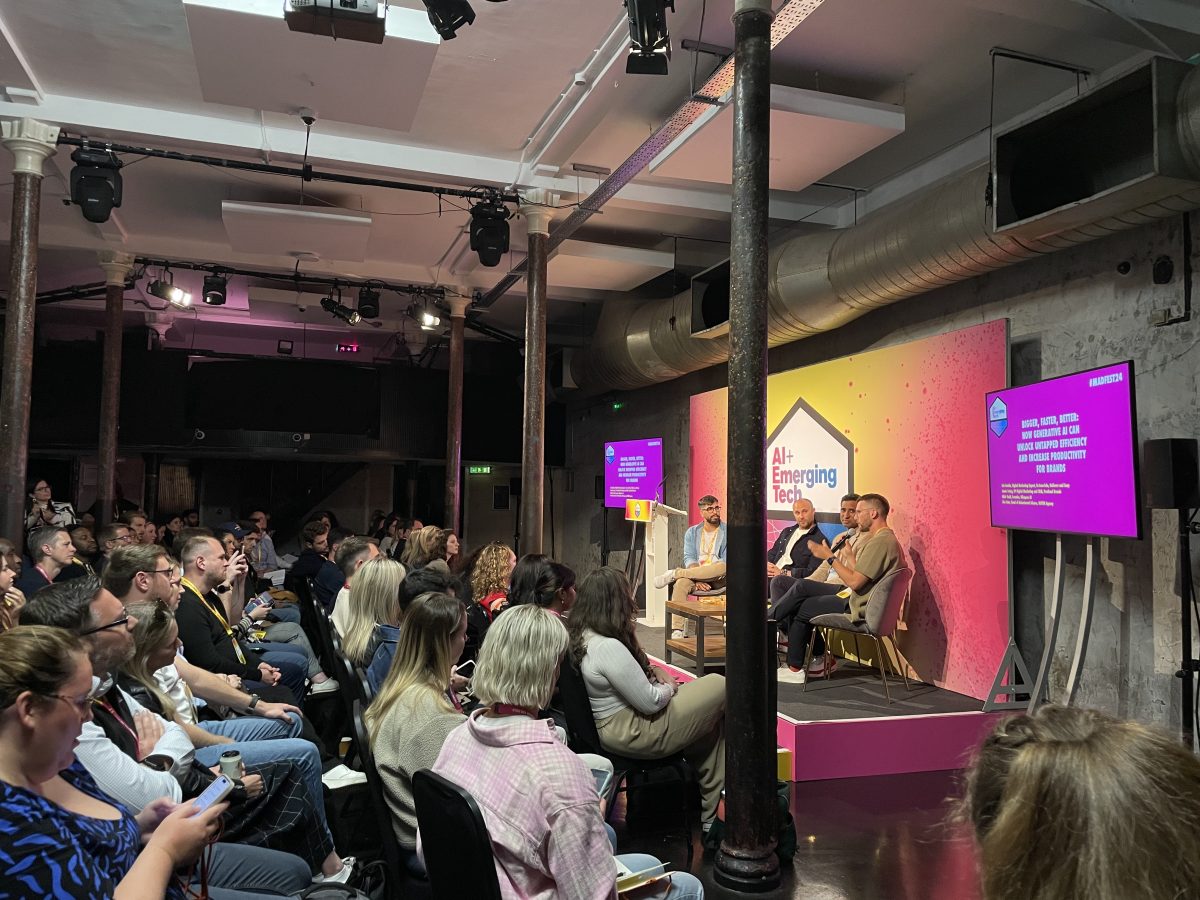
AI for brands
Although the main focus of my day at MAD//Fest was creativity and attention, I could not resist queuing up to attend the panel discussion on AI. The panellists — Seb Bardin (Unilever), Jamie Irving (Pentland) and Alec Barr (Oliver Agency) — discussed how generative AI can unlock untapped efficiency and increase productivity for brands.
The speakers debated where the responsibility for adopting AI lies, with Barr arguing that ‘it is brands’ responsibility to invest, and agencies’ responsibility to innovate’. The panellists agreed that while AI adoption should be a collaboration between agencies and clients, agencies do move faster; as a result, the burden of AI inevitably falls on them.
The panel further addressed the use of AI beyond generating copy, explaining that it can assist with ideation and the enhancement of briefs. According to the panel, all companies should invest in AI or a ChatGPT subscription to allow their people to innovate. They also noted that the incentive structure for AI adoption is currently flawed as middle managers often give employees more work when automation frees up time.
With the rapid and unpredictable advancements in AI, tech, and the marketing industry as a whole, it will be interesting to see how much the content of next year’s MAD//Fest will differ from this year’s.
Featured image: MAD//Fest
